Written by U.S. Army Staff Sgt. Brent C. Powell
Task Force Rakkasan 3rd Brigade, 101st Airborne Division
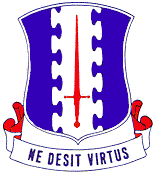
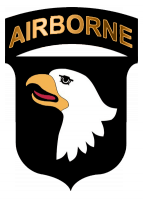 Khowst Province, Afghanistan – Helicopters have become a common sight in Afghan skies, and whether carrying supplies and personnel or providing close air support for ground troops below, they have proven to be an invaluable asset in the war against terrorism.
Khowst Province, Afghanistan – Helicopters have become a common sight in Afghan skies, and whether carrying supplies and personnel or providing close air support for ground troops below, they have proven to be an invaluable asset in the war against terrorism.
Keeping those helicopters running and in top mechanical shape is no easy task, but for a few Soldiers at Forward Operating Base Salerno, that mission is their focus, and it is a job they take seriously.
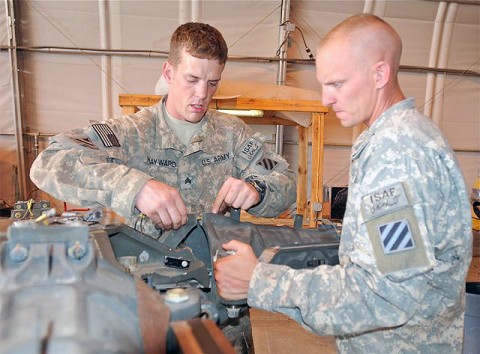
Since their arrival 11 months ago, their hard work helped task force pilots log nearly 26,000 hours of flying time.
“Our mission is maintenance support, technical support and shop support for all of our task force’s rotary aircraft,” said U.S. Army Sgt. 1st Class James Wilson, a native of Danville, AR, and production control noncommissioned officer with D Co., Task Force Viper. “This is a very self-sufficient task force. We are able to do a lot of different repairs, and there are very few things we don’t have the know-how or training to fix.”
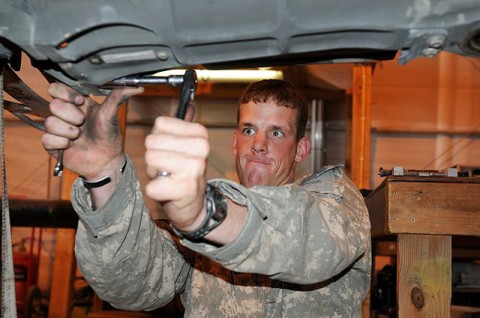
The maintenance department is divided into different sections, including armament, quality control, airframe repair, power train and an engine shop.
Whether it is routine scheduled maintenance or an emergency repair such as a bird-strike, a leak or a small crack in the airframe, the Soldiers stand ready to accomplish their mission 24 hours a day.
“We normally work 12-hour shifts, but there have been plenty of days we’ve put in 15 hours or more,” said U.S. Army Sgt. James Elliot, turbine engine mechanic from Millbrook, AL, assigned to D. Co., TF Viper. “The operational tempo, the speed and the amount of work we do here is much higher than in the states, but we will do whatever it takes to get the job done.”
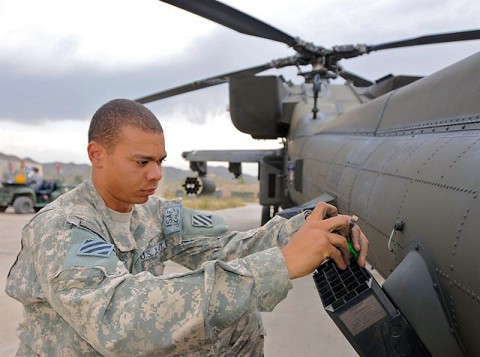
A large part of the department’s job is conducting preventative maintenance on the aircraft in a time-consuming process called phasing.
Phasing involves completely stripping an aircraft down to fix or replace worn parts, looking for and repairing cracks in the airframe, removing and inspecting all the electrical components and much more.
“Every 500 hours of flying time, the [AH-64] Apache helicopters are brought in for phasing,” said Elliot. “Some aircraft can fly longer, such as the [UH-60] Blackhawks, but they all are required to go through the phasing process at some point.”
The process can take nearly two weeks per aircraft, and so far the Soldiers completed phasing for nearly 50 helicopters.
In addition to the phasing process, there is plenty of other work to keep the Soldiers busy as well.
They maintain and repair the guns and armaments of several Apaches, make structural repairs to aircraft frames, fix and replace engines, rotors, blades and any parts that could cause problems with the aircraft’s safety.
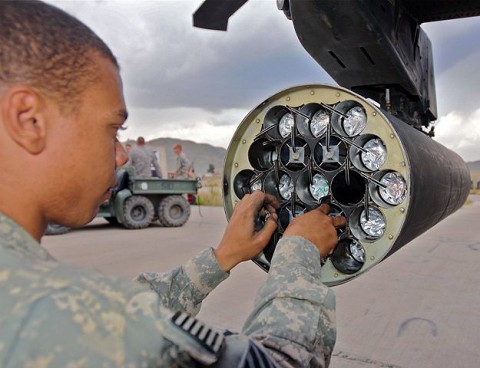
But despite the hard work and long hours involved, the Soldiers seem to enjoy what they do.
“It’s definitely a challenging job because you have to know all the different airframes and engines,” said Elliot. “It’s a lot to know, but that’s what I like about it. I like the challenge and learning all the knowledge that comes with it.”
Although the maintenance job challenges the Soldiers, their ability to work through the challenges and get the mission done does not go unnoticed.
“I’m more impressed by far with this task force and these Soldiers than I have ever been with any other unit in nearly 20 years of being in the military,” said Wilson. “These guys are capable of doing anything, and I could not ask for a better crew.”


